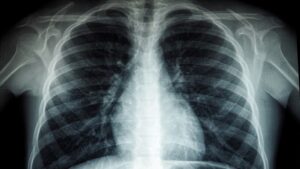[ad_1]
ESOPHAGUS WHAT IS (ESOPHAGUS) CANCER?
Cancers that occur in the esophagus, which is approximately 25-30 cm long, starting from the neck and extending to the stomach, are named as esophageal cancer or esophageal cancer.
WHAT ARE THE SYMPTOMS OF ESOPAGUS CANCER?
The most important symptom of esophageal cancer is difficulty in swallowing. Symptoms of esophageal cancer include feeling stuck and painful swallowing. In cases where the tumor does not cover 60-70 percent of the esophagus, it usually does not give any symptoms.
Since the symptoms of esophageal cancer occur very late, the tumor can be detected in advanced stages in most of the patients. In elderly people, drooling on the pillow at night and pain when swallowing may be the first signs of esophageal cancer.
Symptoms of esophageal cancer may differ, depending on where the tumor originated.
Difficulty in swallowing is a common symptom of esophageal cancers in every region.
– Another symptom of esophageal cancer that occurs near the neck area can be hoarseness.
Cough may be a symptom of esophageal cancer that occurs in the middle of the chest.
– The symptom of esophageal cancer, which occurs in the lower area close to the stomach, may be in the form of severe reflux.
Although very rare, bleeding can sometimes be seen among the symptoms of esophageal cancer. This bleeding is seen as intestinal bleeding rather than blood coming from the mouth.
Esophageal cancer different symptoms according to the stages can give.
Stage 1 esophageal cancer may not cause symptoms. Esophageal cancer is detected at stage 1, usually by chance or as a result of screening.
A symptom of stage 2 esophageal cancer may be difficulty swallowing. Although rare, among the symptoms of esophageal cancer at this stage, a feeling of being stuck and intestinal bleeding can be experienced.
In stage 3 esophageal cancer, the symptom is severe swallowing difficulty. The patient becomes unable to eat solid food. Drooling can occur more often in older people.
Symptoms of stage 4 esophageal cancer may differ depending on the site of metastasis. Severe weight loss is among the first symptoms in stage 4 esophageal cancers. If the tumor has invaded the trachea, cough may be experienced. If it has spread to the liver, side pains can be seen. If it has spread to the bones, bone pain can be seen.
ESOPAL CANCER TREATMENT METHODS
Treatment of esophageal cancer differs according to its stage and region.
In adenocarcinoma or squamous cell (squamous) stage 3 esophageal cancers, a treatment called chemoradiotherapy, in which chemotherapy is combined with a not very high dose of radiotherapy, is applied. Serious responses are received from this treatment. Esophageal cancer surgery is performed in patients who become suitable for surgery with chemoradiotherapy treatment.
In stage 4 esophageal cancers, surgery is usually not performed. This patient group is treated with chemotherapy and radiotherapy.
In stage 1-2-3 esophageal cancers, treatment is planned for the area where the tumor is located.
Follow NTV on social media
[ad_2]
Source link






